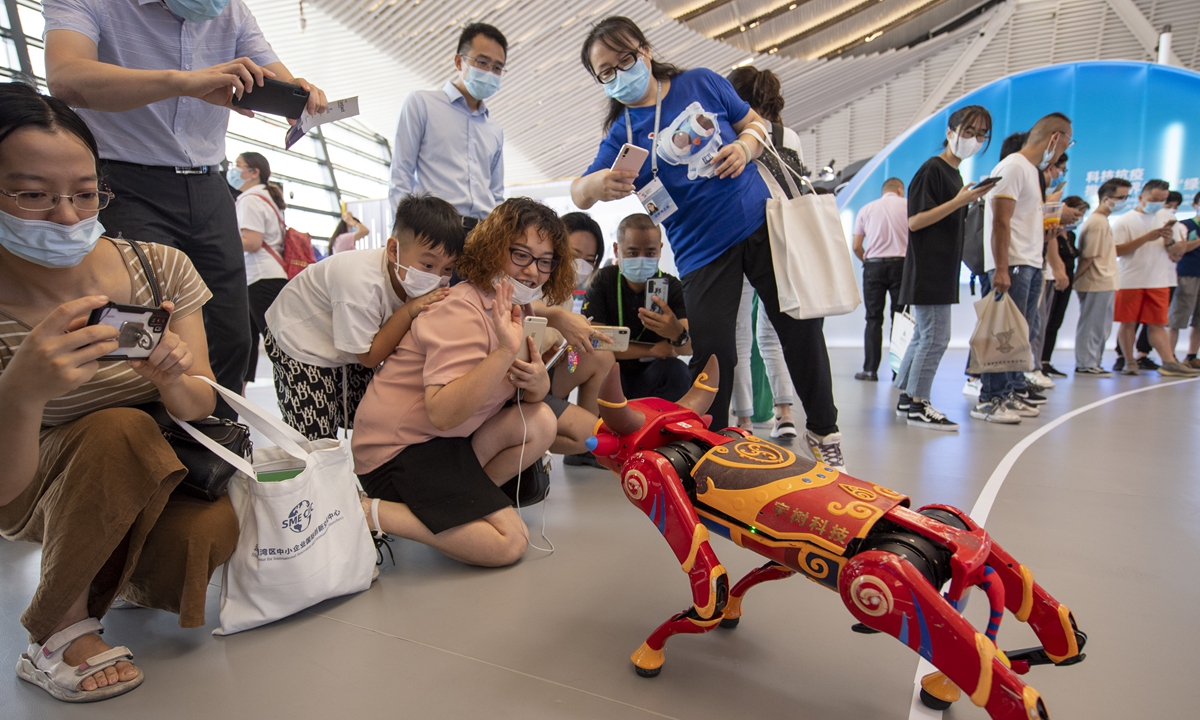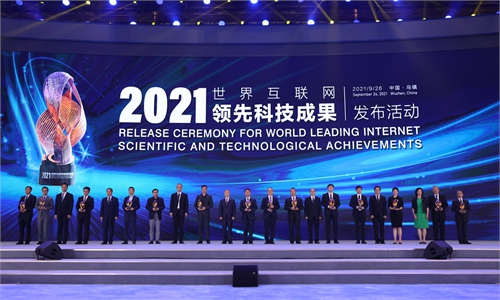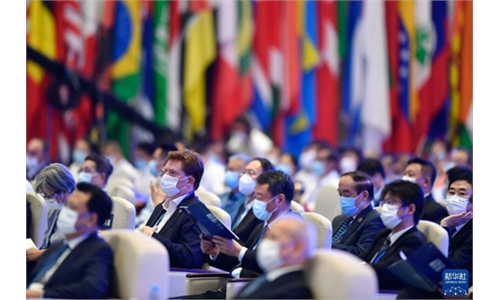Reporter’s diary: a vigorous yet low-profile Wuzhen Summit marks turning of China’s internet industry toward practicality

The 2021 World Internet Conference Wuzhen Summit kicked off on Sunday. Photo: IC
The day before I departed for Wuzhen, a beautiful water town in East China's Zhejiang Province to attend this year's World Internet Conference (WIC), more frequently called the "Wuzhen Summit," I read an article in the South China Morning Post that described last year's Wuzhen Summit as the "quietest year ever."There's a point in drawing that conclusion, considering that 2020 was a period of low ebb for the general economy, as the sudden outbreak of the coronavirus stifled China's and the world's growth, while global participation was stymied by the pandemic.
The internet sector was also facing multiple pressures, whether from the US government, which was anxiously moving to purge Huawei from the world's 5G networks, or from domestic regulators which tightened regulation on internet-based monopolies.
This year, the environment for internet companies has not become any easier. The Chinese Big Tech companies like Alibaba and Tencent have been hit with a wave of investigations, fines and new regulations as the Chinese government mounts efforts to address monopolies, unhealthy content and illegal purchasing on the platforms. As a result, I thought this year's Wuzhen Summit might be similar to last year's, with companies fearful of making high-profile impressions in public.
I was wrong. At least the summit was not "quiet" at all.
In many aspects, the summit was still under the shadow of the coronavirus, particularly judging from the meticulous and at the same time cumbersome pandemic control measures, but the vitality of the Wuzhen summit was back.
The exhibition halls were bustling all day with visitors of all ages - children, elderly people, industry clients, the media and so forth. Almost all the famous Chinese internet firms sent their representatives to the event, and big shots like Tesla's founder Elon Musk and Alibaba's CEO Daniel Zhang spoke in person or by video.
A representative from one of the exhibitors told me that he remembered last year's exhibition area was "very small." This year, everything seemed to return to the pre-coronavirus state, he said, gleefully.
But at the same time, some changes were taking place. In the past, it was more like a public window through which people peeped into the glamor of China's internet giants, with the media paying a lot of attention to internet celebrities like Jack Ma Yun or Liu Qiangdong, talking about what they said or what they wore. This didn't happen this year.
This might be an industry response to the series of government regulations and penalties for internet companies, which pushed high-flying executives to keep a low profile. At the WIC, a lot of the discussion and displays revolved around how those companies are ready to coordinate with government regulations and strategies.
For example, Musk talked about data localization, Alibaba put up a board showing its social responsibility efforts at the booth, Baidu's executive called for internet connectivity, and Ant Group's CEO told the Global Times that the company's representatives gathered in Wuzhen with a sense of historical responsibility, following the government's common prosperity blueprint.
It's not that those companies are shouting slogans to appease regulators, but rather they are doing this with a very elaborate approach.
One detail could show that: at Ant Group's booth, a very small introduction board in a humble corner showed the firm's efforts to reduce the use of wood and other pollution-causing materials in setting up the exhibition booth. To some extent, it could show how the company is working to implement the concept of environmental protection to conform to China's carbon goals.
Such a trend was also shown at the exhibits, which did not mainly consist of robots or flashy high-tech gadgets, but contained graphic solutions, data-sharing platforms, operating systems, chips and open-source platforms. The exhibits were more down to earth and technology-based.
I think all these factors reflect the changes that are taking place in China's internet industry, as it gradually takes off its "halo" and returns to the basics of making technology breakthroughs, fueling the economy and helping people live better.



